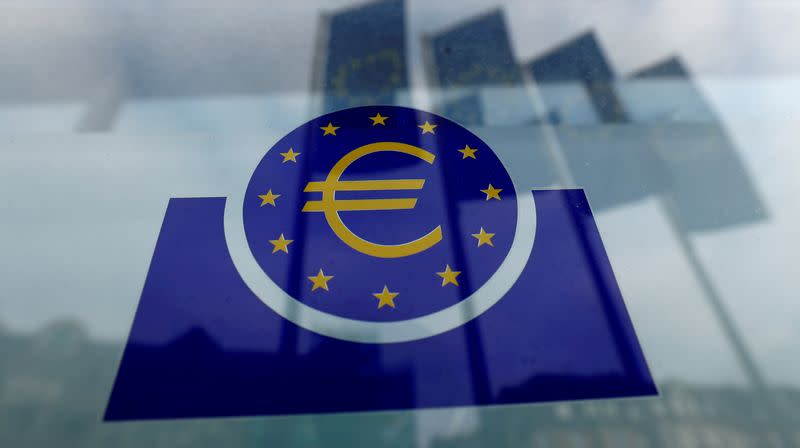Euro zone bond yields fall sharply after U.S. inflation data

By Stefano Rebaudo
(Reuters) - Euro zone government bond yields plunged on Thursday after U.S. inflation cooled off in October, supporting the view that the Federal Reserve might slow down its tightening path.
The closely watched core consumer price index (CPI), which excludes the volatile food and energy components, rose 0.3% last month after gaining 0.6% in September. Economists expected core CPI to gain 0.6%.
Germany's 10-year government bond yield fell 19 basis points (bps) to 1.98%, its biggest daily drop since Oct. 3.
It rose 20 bps last week after dropping 35 bps the week ending on Oct. 28, in its biggest weekly fall since 2011.
The 2-year yield dropped 17.5 bps to 1.946%. It hit its highest level since December 2008 on Tuesday at 2.25%.
"Today's U.S. inflation figures confirm suggestions that the peak may be disappearing down the rear-view mirror," said Neil Shah, executive director at Edison Group.
"At the same time, stubborn core inflation persists and continuing reports of a tight labour market will fuel wage inflation, pointing to a longer-term and more entrenched inflationary challenge," he added.
Italy's 10-year government bond yield was down 27 bps at 4.008%, its lowest since Oct. 27.
The spread between Italian and German 10-year yields tightened to as narrow as 200.5 bps.
"The marked undershoot in core inflation will play into the Fed's hands in terms of slowing the pace of rate hikes at its December meeting," said Daniele Antonucci, chief economist and macro strategist at Quintet Private Bank.
"The decline in core inflation provides an early indication that underlying inflation pressures are beginning to ease, even if it may be too early to call for a peak just yet," Antonucci added.
Markets are also closely watching the U.S. election results as they expect a Republican majority to curtail Democratic President Joe Biden's ability to pursue expansive fiscal policy plans, negatively impacting rates.
Republicans were edging closer to securing a majority in the U.S. House of Representatives early on Thursday while control of the Senate hung in the balance.
Some analysts argued that the U.S. elections might prove of little importance to the market in the short term as investors will focus on inflation and the Fed response.
However, looking into mid-late 2023, they expect delayed effects as the budget and debt ceiling debate come into focus.
On the euro area front, Citi analysts argued that the European Central Bank Consumer Expectations survey "conveyed a somewhat reassuring message".
They highlighted that the median for year-ahead inflation expectations rose from 5.0% to 5.1% and, more importantly, have been at those elevated levels since March. Those for the three-year ahead horizon were stable in September, at 3%.
The German 2-year interest rates swap spread was up 1 bp to 85.6 after briefly touching its tightest level in almost three months at 78.3
The ECB has raised the amount of bonds it can lend against cash to 250 billion euros to ease a market squeeze that tends to get worse towards the year of the year and widen swap spreads.
(Reporting by Stefano Rebaudo, additional reporting by Samuel Indyk, editing by Raissa Kasolowsky, Angus MacSwan, Mark Heinrich and Jonathan Oatis)

 Yahoo Finance
Yahoo Finance 